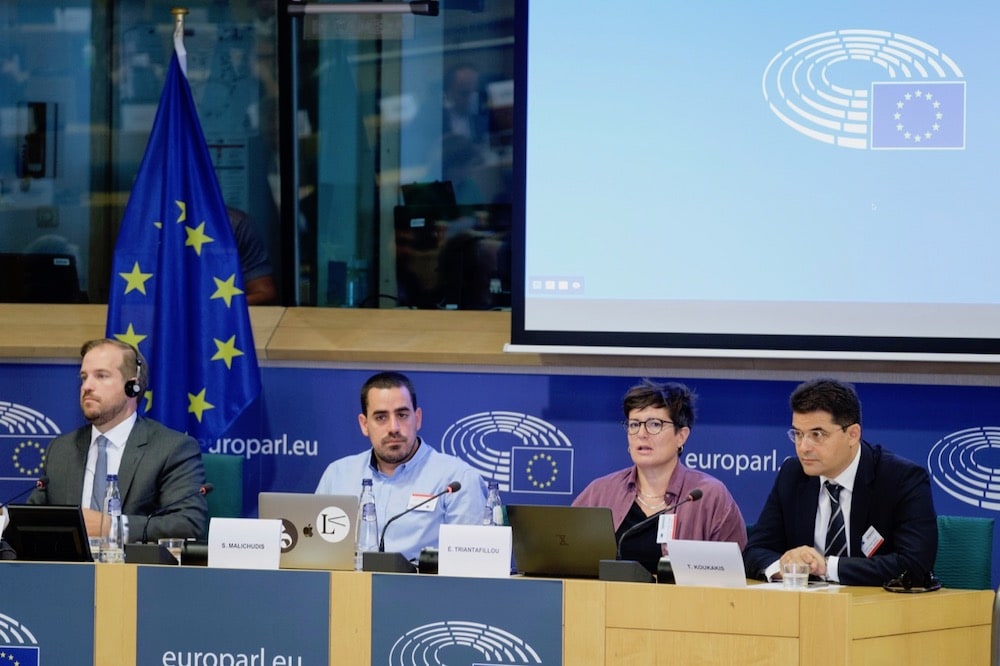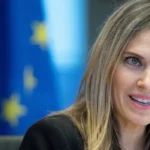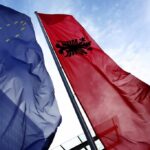[Geneva, Switzerland – September 19, 2023] — As the 54th session of the Human Rights Council takes place in Geneva from September 11 to October 13, 2023, we issue a solemn plea to all members of the Council to elevate the discussion surrounding press freedom in the United Arab Emirates (UAE) with the same unwavering commitment as they do when addressing human rights issues in other nations.
The UAE, a member of the Human Rights Council, must be held accountable for its actions. Failing to address the alarming erosion of press freedom will only perpetuate violations of fundamental human rights, resulting in untold suffering for individuals and a chilling effect on the public’s right to information.
Key data highlighting the UAE’s press freedom violations includes:
1. A sharp decline in the World Press Freedom Index for the year 2022, with the UAE ranking 138, demonstrating a disturbing trend of stifling dissenting voices and curtailing independent press, whether local or foreign.
2. The National Media Council’s regulation of media institutions in the UAE, which includes censorship of content critical of government decisions or deemed a threat to “social cohesion.”
3. The unjust detention of journalists by UAE authorities, coupled with systematic online monitoring under the 2012 Cybercrime law, further exacerbating the persecution of media professionals.
4. Prominent journalists, academics, and human rights defenders being banned from entering the UAE or facing persecution and arrest, depriving them of their right to freedom of expression, both online and offline.
Instances of persecution of journalists in the UAE are deeply troubling:
1. In October 2016, Ms. Amina Alabdouli, a young mother of five children, was sentenced to five years in prison for her alleged creation of Twitter accounts and posting comments critical of the UAE, resulting in charges of disturbing public order, insulting the UAE, circulating misleading information, and damaging UAE’s relations with allied countries.
2. In March 2016, Mr. Abdullah Newab Balushi and Mr. Marwan Mohammed Atiq bin Sufyan Al Falai received five-year prison sentences for sharing information on WhatsApp and creating a website.
3. In February 2016, Mr. Saleh bin Mohammed bin Saleh, an Emirati blogger, was sentenced to three years in prison for his tweets.
UAE laws that stifle freedom of the press include:
1. Federal Law No. 15 of 1980 on Press and Publication, one of the most restrictive laws in the Arab world, which enables censorship, prior distribution control, and bans criticism of the government, its allies, or any royal family member.
2. Federal Legal Decree No. 5 of 2012 on combating cybercrime, which has been used to further repressive legislative measures against media freedom.
3. Federal Decree Law No. 2 of 2015 on anti-discrimination, which criminalizes the broadcasting, publication, or transmission of provocative material through various media, including mainstream and online platforms.
4. Amendments to the Penal Code that reinforce the criminalization of the right to freedom of expression, with Article 182 bis providing severe punishment for anyone promoting opinions against social peace or state unity.
The Office of the United Nations High Commissioner for Human Rights (OHCHR) plays a vital role in promoting and protecting human rights, including the right to freedom of expression and media freedom. OHCHR’s work encompasses the safety of journalists and media workers, including monitoring and reporting on violations against journalists.
During this session, we call upon all members of the Human Rights Council to:
1. Urge the UAE to immediately cease the persecution of journalism and halt violations of press freedom.
2. Demand the repeal of repressive laws that stifle freedom of the press, including the Cybercrime Law and Anti-Discrimination Law.
3. Call for the protection of the rights of journalists and media workers, ensuring their safety and freedom to report without fear of reprisals.
Preserving press freedom is a cornerstone of democracy and the protection of human rights. The Human Rights Council has a moral obligation to address these grave violations and ensure the principles of justice, fairness, and human rights prevail in the UAE.







